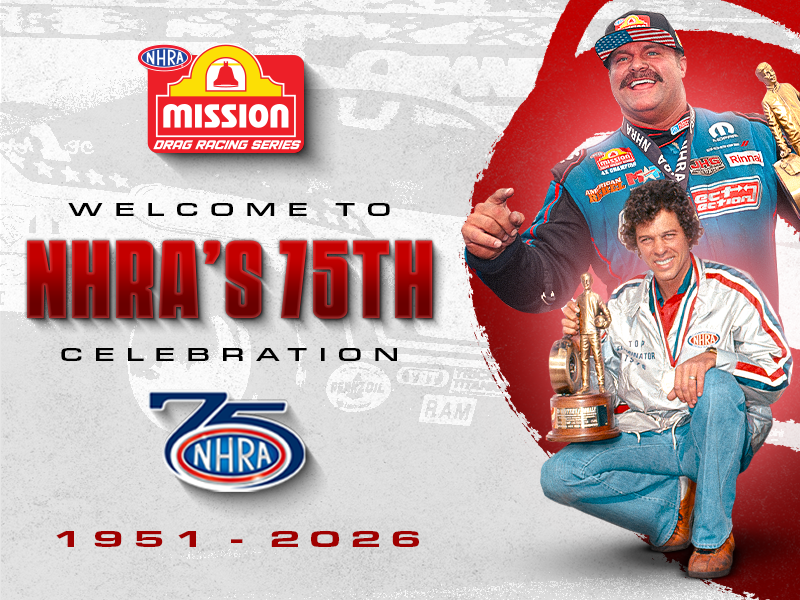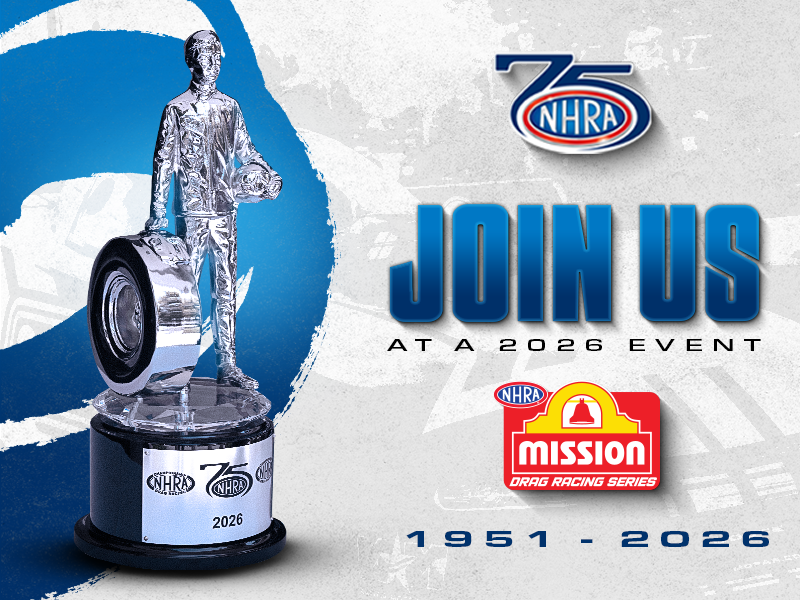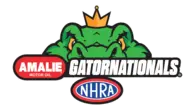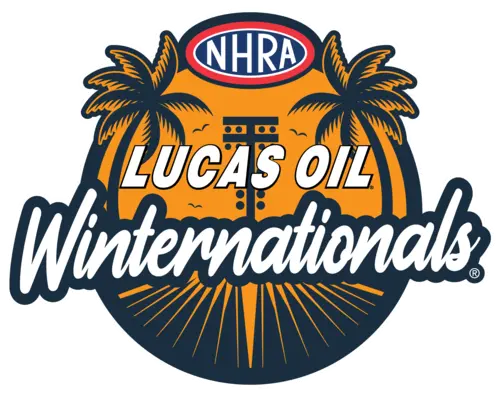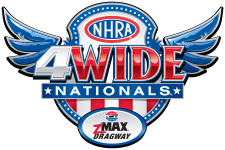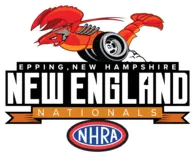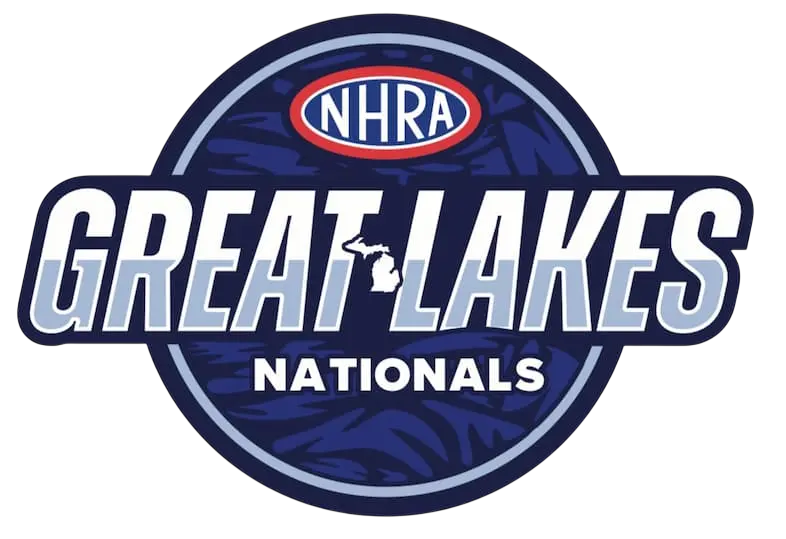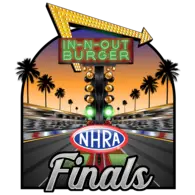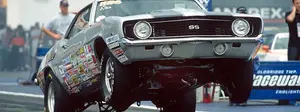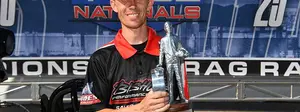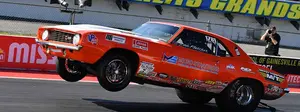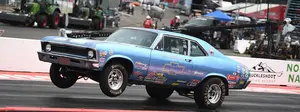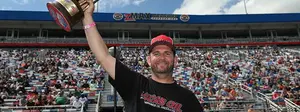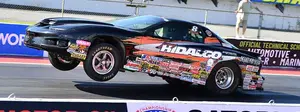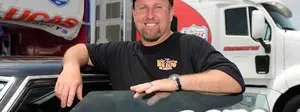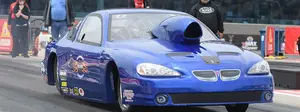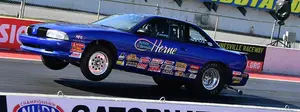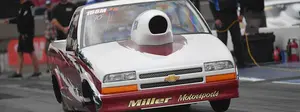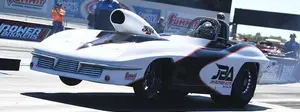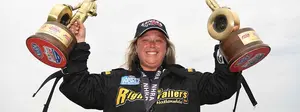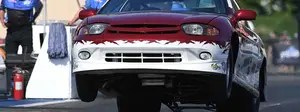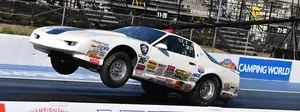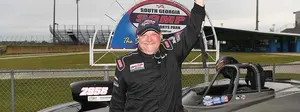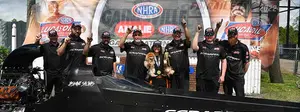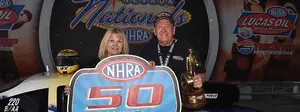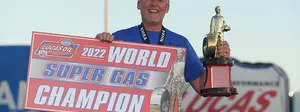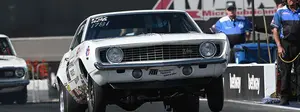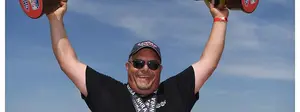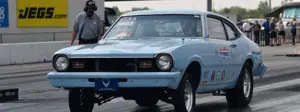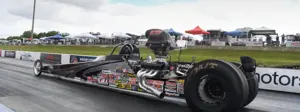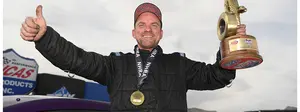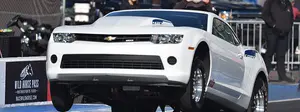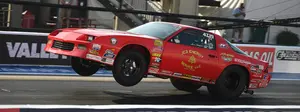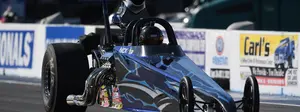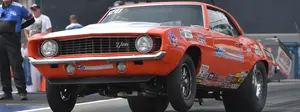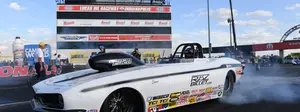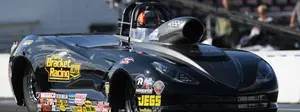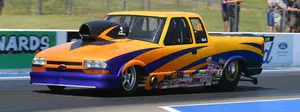Pure perfection
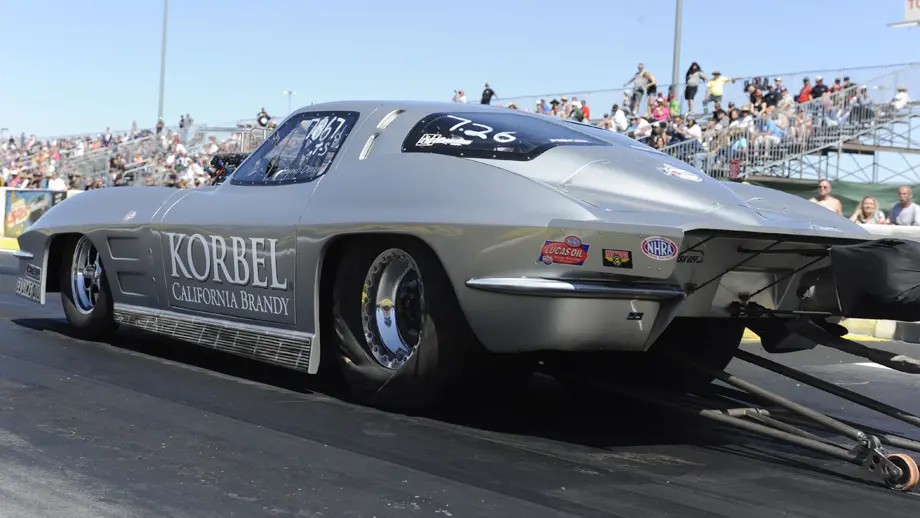
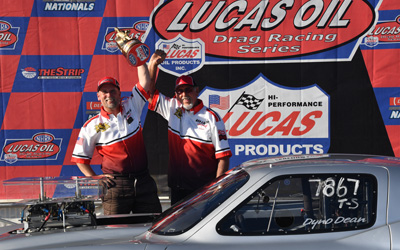 It has often been said that a driver needs at least one lucky round in order to win an NHRA national event, but for Las Vegas Top Sportsman champion Dean Hall that might not be the case. Luck is often a rare commodity, particularly in Las Vegas, so Hall took matters into his own hands with a driving performance that made him nearly unbeatable. Top Sportsman and Top Dragster racers generally feature some of the best drivers in the NHRA Lucas Oil Drag Racing Series, and Hall’s performance in each of the five elimination rounds was exemplary.
It has often been said that a driver needs at least one lucky round in order to win an NHRA national event, but for Las Vegas Top Sportsman champion Dean Hall that might not be the case. Luck is often a rare commodity, particularly in Las Vegas, so Hall took matters into his own hands with a driving performance that made him nearly unbeatable. Top Sportsman and Top Dragster racers generally feature some of the best drivers in the NHRA Lucas Oil Drag Racing Series, and Hall’s performance in each of the five elimination rounds was exemplary.
In Major League Baseball, perfect games are a rarity. The same goes for drag racing and perfect runs, but Hall managed to accomplish the extraordinary feat in the second round when he stopped Kelly Harper with a .000 reaction time and a 7.220 on his 7.22 dial. Harper was in big trouble from the start, in spite of a very competitive run that included a .024 light and a 7.075 on his 7.07 dial.
“To be honest, I thought I was late, and I thought the car was running slow,” Hall admitted. “It looks impressive on paper, but you’re really close to being wrong. It was impressive to see it, and I’d like to say that I planned it that way, but that’s not the case.”
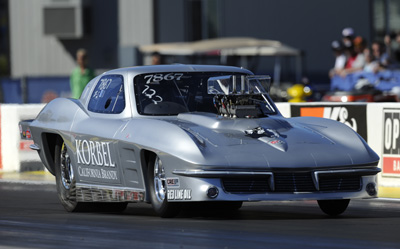 Oftentimes, after a perfect run, or any reaction time that borders on a red-light, a driver will tend to take a more conservative approach for the subsequent rounds — a strategy that often backfires. Hall didn’t allow that to happen to him, and he applied the pressure down the stretch with three more nearly perfect reaction times to seal the deal. In the final, Hall wheeled his Korbel Corvette past Pomona champ Ed Olpin with a .006 light and a 7.295 on his 7.26 dial. Olpin was nine-thousandths behind at the finish line. For the record, Hall’s five lights on race day were .012, .000, .010, .005, and .006.
Oftentimes, after a perfect run, or any reaction time that borders on a red-light, a driver will tend to take a more conservative approach for the subsequent rounds — a strategy that often backfires. Hall didn’t allow that to happen to him, and he applied the pressure down the stretch with three more nearly perfect reaction times to seal the deal. In the final, Hall wheeled his Korbel Corvette past Pomona champ Ed Olpin with a .006 light and a 7.295 on his 7.26 dial. Olpin was nine-thousandths behind at the finish line. For the record, Hall’s five lights on race day were .012, .000, .010, .005, and .006.
For Hall, the win was the third of his career at an NHRA national event. He has also collected two wins at his home track, Sonoma Raceway, claiming the Super Gas title in 2001 and the Super Comp crown in 2008. Hall attributes his more recent success to the much-needed sabbatical he took last summer.
“I took some time off, and that break paid off,” Hall said. “I wanted to come out here and be able to do something, and it worked out. I wasn’t even sure I was coming to this race. [Super Comp racer] Steve Casner fixed my transmission on Monday, and we entered at the last moment. That was my first perfect run, and I know I may not ever get another, but I got the win, and that’s what counts.”
The best of the rest: The brothers Mandella, Phil Jr. and Tony, each reached a final round in Las Vegas and went back to Southern California with a pair of runner-up finishes. Tony Mandella, a six-time national event winner, faced off against former national champ Alan Ellis in the Comp final. In a rematch of the 2015 spring Las Vegas final, Ellis, in his A/AA roadster, and Mandella, in his C/TA Chevy S-10 truck, both scorched the starting line with lights of .004 and .008, respectively. At the finish line, Ellis prevailed with a (-.595) 6.535 to Mandella’s (-.560) 8.490. It was Ellis’ ninth national event win since 2007.
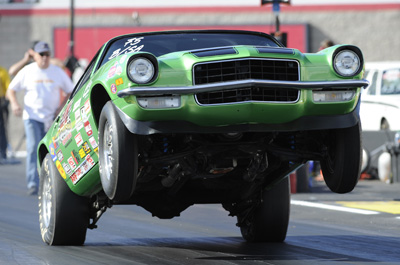 Phil Mandella Jr. reached the Stock final in his G/SA ’69 Chevelle before a -.014 red-light ended his bid for a first win. Mandella needed to be sharp on the Tree, especially after his opponent, Chris Hall, registered a perfect .000 light in his B/SA ’70 Camaro. Earlier, Hall had stopped Brian McClanahan and Brian Seaburg to reach the final.
Phil Mandella Jr. reached the Stock final in his G/SA ’69 Chevelle before a -.014 red-light ended his bid for a first win. Mandella needed to be sharp on the Tree, especially after his opponent, Chris Hall, registered a perfect .000 light in his B/SA ’70 Camaro. Earlier, Hall had stopped Brian McClanahan and Brian Seaburg to reach the final.
“In the semifinals, I was out of my mind,” said Hall. “After that, I pretty much settled down and said to myself, ‘I’m gonna do this.’ If he could make a better package than me, he deserved it. I’ve been here a million times in my mind. I’ve envisioned doing this all my life.”
Veteran West Coast Stock racer Mike Loge is now a perfect three-for-three after driving his SS/LA Barracuda to the final-round win over fellow Mopar driver Tim Hall. Loge won the race and the Dodge/Plymouth Top Finisher award after Hall fouled. Loge did not have an easy time reaching the final with tough races against past national champions Ryan McClanahan and Brad Burton.
“I’ve been extremely lucky in finals at nationals,” said Loge, who also won the 1986 Denver and 2003 Pomona events. “This time, everything just came together. I was relaxed. All the excitement was in the earlier rounds. After the wind changed from a tail to head wind, it was very difficult to figure a dial.”
The final of Super Comp was a heavyweight battle featuring two-time national champ Luke Bogacki and hired gun Ryan Herem. After an even start, Bogacki crossed the finish line first but paid the price with a 9.049 breakout on the 9.05 index. Herem, driving the dragster owned by his fiancée, Whitney Shields, turned on the win light with a 9.056. Herem has now won five national event titles, including the 2011 Chevrolet Performance U.S. Nationals.
“This was a rough weekend,” said Herem. “I was not driving very well, and then you have to race Luke, who is the best in the business. Somehow, we got it done.”
The fifth time was the charm for emotional Super Gas winner Rick Cates, who completed a lengthy quest to win his first national event title by stopping Tim Parker in the final round. Cates produced a time slip suitable for framing in round three when he stopped six-time world champ Jeg Coughlin Jr. with a .001 light. He later stopped Super Comp winner Herem and then benefitted from some extraordinary luck when his next three opponents, including Parker, did not get down the track under power.
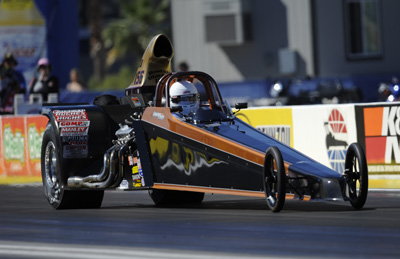 “I’ve been trying to do this for the last 17 years since I retired,” said Cates. “It’s been a long road, and this is my fifth final round. I didn’t want to lose another one.”
“I’ve been trying to do this for the last 17 years since I retired,” said Cates. “It’s been a long road, and this is my fifth final round. I didn’t want to lose another one.”
The Top Dragster presented by Racing RVs class also featured a lot of great side-by-side racing including the final round where Chuck Phelps bagged his first national event win at the expense of multitime division champ Kyle Seipel. Phelps got off the starting line first by a slim margin, .001 to .006, and held on for the win with a 6.603 on his 6.57 dial. Seipel was .013-second behind with a 6.941 on his 6.60 dial.
“Kyle is a really tough racer, and I didn’t want to give him the light,” said Phelps, who also had a .001 light in his round two win over Denny Hills. “I felt like I needed to go for it and it all worked out. I couldn’t be happier.”



